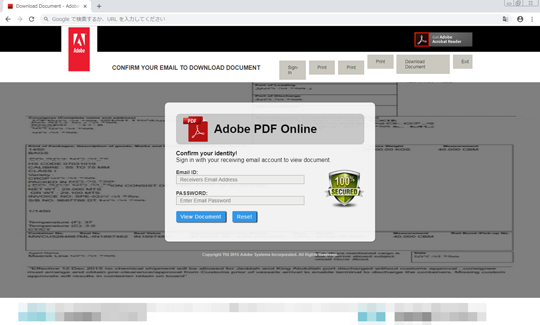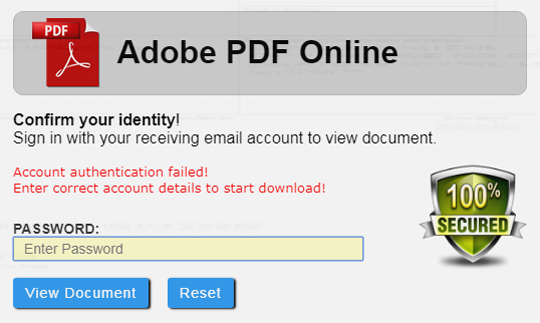Trojan.JS.PHISH.AMX
Trojan.HTML.Phish.pj (Kaspersky)
Windows


Threat Type: Trojan
Destructiveness: No
Encrypted: Yes
In the wild: Yes
OVERVIEW
This Trojan arrives on a system as a file dropped by other malware or as a file downloaded unknowingly by users when visiting malicious sites. It may be hosted on a website and run when a user accesses the said website.
TECHNICAL DETAILS
Arrival Details
This Trojan arrives on a system as a file dropped by other malware or as a file downloaded unknowingly by users when visiting malicious sites.
It may be hosted on a website and run when a user accesses the said website.
NOTES:
This trojan presents users with a fake confirmation page tricking them to sign in:
It also steals the following information:
- Email address
- Password
It then sends the gathered information to the following URL:
- http://{BLOCKED}era-neraida.com/js.php
- http://{BLOCKED}nline.com/inc.php
After entering the login information, it accesses the following site to display another fake message:
- http://{BLOCKED}ct.com/app/login.html?cmd=login_submit&id={hex string}session={hex string}
The following fake message tells the user to reenter the password again:
SOLUTION
Step 1
Before doing any scans, Windows 7, Windows 8, Windows 8.1, and Windows 10 users must disable System Restore to allow full scanning of their computers.
Step 2
Close all opened browser windows
Step 3
Scan your computer with your Trend Micro product to delete files detected as Trojan.JS.PHISH.AMX. If the detected files have already been cleaned, deleted, or quarantined by your Trend Micro product, no further step is required. You may opt to simply delete the quarantined files. Please check the following Trend Micro Support pages for more information:
Did this description help? Tell us how we did.



